#analysis of the game on twitter and harvey noticed
Explore tagged Tumblr posts
Text
So the Death of the Outsider lacks a chaos system and it makes perfect sense
(I recommend reading my other post on how chaos works in the DH universe first but it is not mandatory.)
The point of the chaos system is, at its core, a reflection of how a world already at its tipping point reacts to the player's actions: Dunwall ridden by the plague and oppressed by the Lord Regent’s rule, Karnaca bloodfly-bitten and slowly torn to shreds by the Duke with people scared after the recent coup.
Billie, however, simply exists as a person once the world has been tipped towards the better, Emily having reclaimed her throne and Karnaca slowly but surely steering towards better times. Her quest is not motivated by politics or by a falling empire. It is entirely personal to her, Daud, and the Outsider.
Billie is an ex-assassin. She puts the world on a tipping point, but she does not decide whether the world rights itself or comes crashing over the edge. She takes jobs from the black market, sometimes killing people for money, because that is all it is to her - a job. And while she may kill innocent people while at it, there is no more terror it can bring atop the cruel rule of the Duke and people dying in the mines. In the end, she will disappear into the shadows. It is just another mugging, another unfortunate murder of a father coming home in the evening. Nothing more, nothing less. No responsibility to take over it after.
She is dedicated to her quest, and that quest is not even hers - it is Daud's, and she is just going along with it out of maybe guilt, maybe old times' sake. She is not even that interested in killing the Outsider herself, has very little stakes in it, and decides to go through with it because it's what Daud wanted. There is no world that can react to her because she is the world that is reacting, in a sense, to Daud's wishes and the Outsider's subtle interventions.
Compared to, say, DH2 which takes place months before the events of DotO, Billie has very little to lose, no place to reclaim, no world to save. The results of her actions, no matter what they might be, won't change how the world is at the end of the game. Emily can choose whether a brilliant doctor lives so she can save lives, she decides whether the Howlers or the Overseers take over Batista, dictates who rules and with how much power, with what level of cruelty. Billie is killing a god, no matter what it takes, and there is little need for consideration of how this result is achieved.
The game does not even have targets, save for one, the Outsider himself. All the missions are about gathering intel and preparing for the job. The structure of the whole game is very different to serve the purpose of the plot and honestly it's a clever choice so that the focus remains on the one thing only - killing the Outsider.
One thing I did not mention in relation to chaos in my other post is that the chaos also influences the Outsider and his speeches at the shrines. Which, fair enough, it is just one more change in dialogue among many. But in the case of DotO, he is directly involved. He is not an observer anymore. He has real reason to be emotionally invested in what is happening and what Billie is doing. He needs to bait her into murder, or change her mind to spare him and free him from his eternal imprisonment. There can't be a change from interest to cynicism as Billie kills more people to get to him, because in the end, he is the target. He wants out of the Void by any means necessary, which means he has to be fully invested at all times. He has no reason to suddenly go soft and make subtle comments. He comes across as so much more malicious in this game, maiming Billie and being so incredibly cruel when he tells her that Daud has passed while she was away. All this because he can't risk her changing her mind, thinking to herself, “Hey, maybe he sucks but he’s not That Bad” and then turning on her heel to leave. He is trying to influence Billie instead, which he didn’t do with his Marked (unless you count his mentions of multiple possible outcomes as influencing, or him telling Daud about Delilah).
So no, the world won't change for you, the player. It won't change because you chose not to kill anyone, not even the contract targets, because if you don't do the dirty work, someone else will. And the Outsider cannot change either, because Billie is not changing the fate of an empire. She is changing the fate of Him, personally, and he cannot afford to let her choose the only bad choice - indifference. So there is no point in a chaos at all.
No matter what Billie does in the end, the outcome will be the same - the Void will change. sShe will change the universe as they know it, but no matter how she goes about it, the change will come. She is not faced with a question of what she wants the world to be. She was guided there by others, expected to do one thing - kill a god. The world has set her up, and now she has to react.
And so she comes to the Void and is met with the only choice that will matter: Is she going to show mercy, or remain the same?
#dishonored#doto#death of the outsider#daud#the outsider#billie lurk#another post on 'people dont understand chaos in these games and I am Upset about it'#while checking the wiki on the missions in doto so I wasnt actually forgetting anything I found out that someone got hired over doing#analysis of the game on twitter and harvey noticed#if this is all somehow correct and harvey sees it hi hello let me write dh3 I promise I wont make it into a dating sim#these are not tags I should be leaving under this post#anyways uh yeah there you go#dh#I should write that one post talking about how I interpret the chaos system in each game separately#also read the first essay. I am begging. its good#essays tag
57 notes
·
View notes
Text
PR Weekly Market Analysis
Week 1: Atalanta BC
My PR activity this week is a video opportunity across various social media platforms notably Instagram and Twitter. The video primarily focuses on Atalanta’s Victory over Valencia in the champions league Round of 16.
The Video Was posted by the official Instagram and Twitter handles of the Atalanta BC and posted simultaneously on both platforms on 18th March.
The PR activity being used is a video opportunity to keep up with the Fan-base's need for Football Content during the quarantine period. I came across this video on my Instagram and Twitter feeds since I follow the club on both these social platforms.
I think this a fantastic way to keep the fan-base attracted to the club when there aren’t many games happening at the moment due to the widespread corona-virus. It gives the fan-base to Cherish on the highs of life during these dark times. It was a great clip as it was very well put together and the thing that stood out to me was, they didn’t edit the video too much allowing their viewers to listen to the players speak during the game since it was played behind closed doors.
The organization's main agenda was to make sure their fan-base engaged and make sure they had some content to watch since their club sporting events have come to an unprecedented halt.
https://www.youtube.com/watch?v=rsZ7T62DYgE&t=5s

Week 2: Retro live
My PR activity this week is an event that took place on prominent social media domains such as Instagram, Twitter, and also updates on their Official website. The event was called Retro Live where they showcase an iconic cricket match from history.
The announcement of this event took on Twitter on 24th March and followed it up by a post on Instagram on the 25th March.
The event was launched in the wake of keeping cricket popular among its fan base and also give them fond memories to look back on during this isolation period. I came across this event on Instagram and twitter feeds.
I think this a fantastic event to give the fans of the sport to look upon those moments where they fell in love with the sport or started idolizing their heroes and gives the fans to catch some live action since there isn’t any cricket going on at the moment. I loved the part where the had set up a commentary team on their official website to view the game, they also gave frequent updates on the key moments during the game and I believe this enhanced the viewer's experience.
The main agenda of the organization was to relieve some of the most iconic moments in the game's history and keep the fan base hooked to the game.
https://www.instagram.com/p/B-HPioqpPPN/
https://twitter.com/ESPNcricinfo/status/1242736479249420289
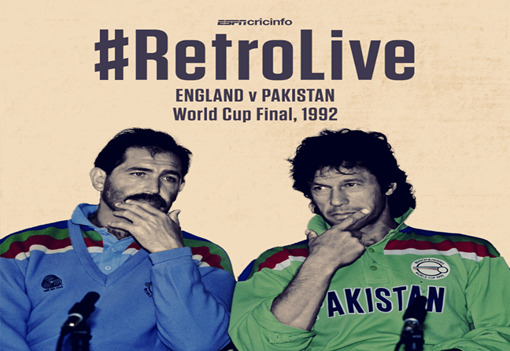
Week 3: Bucs get the G.O.A.T
My PR Activity this week is a Media Release by the Tampa Bay Buccaneers to let their fans and the sporting world know about their recent acquisition Tom Brady.
The article was published on the Buccaneers' official website on 21st March and followed it up later that day by posting it on their social media handles like Instagram and Twitter.
The PR activity used is a Media Release Updating their fans and the sporting world about arguably the best quarterback in the NFL’s history Tom Brady. I came across this article on my news feed and it was quickly followed up on my twitter feed as well since I follow the NFL page on twitter.
It came as a surprise to me but it was a masterstroke by the Bucs to get Tom Brady. They weren’t the best teams in the division and he instantly improves their team balance but also their fan-base was actually on the decline but with the acquisition of one the most marketable players they have surely increased their fan-base. I think the fact that they stressed he was the G.O.A.T in the article tells us how important a signing he was for the Tampa Bay Buccaneers not in terms of team balance but also in a financial aspect.
The main agenda of the organization was to make sure their fans and the sporting world were updated about their player roster and they were spot on with it.
https://www.buccaneers.com/news/tom-brady-qb-buccaneers-free-agency-roster-move
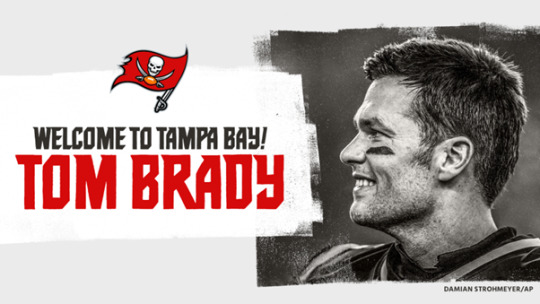
Week 4: Harvey Norman
My PR activity for this week is above the line marketing method used by Harvey Norman in the Herald Sun. The advertisement from Harvey Norman highlights the latest offers and the new schemes on their products.
I came across this advertisement on 3rd April on the Herald Sun’s official app on my mobile phone which was a pop-up advertisement.
The Pop-up advertisement was a direct link to Harvey Norman’s official website. The advertisement focuses on the scheme of 60 months interest-free on payment which has terms and conditions to it. The scheme is storewide with a minimum financed amount of $1000. The scheme also includes a bonus card which is can be used up to $300. The scheme ends on 28th April
The Pop-up advertisement is targeted to all audiences and is a good way to make audiences aware of their schemes since it is always popping up on our screens while glancing news articles. The advertisement used bright colors such as red and yellow which instantly attracts a user to read through the advertisement and they may open up the page if they are interested in it.
The main agenda of this above the line marketing strategy by Harvey Norman was to get audiences aware of the schemes on their products.


Week 5: Virat Scores of the field too
My PR activity is to showcase the engaging nature of public relations in the form of an online class of an educational platform known as unacademy. The online class was hosted by Virat Kohli the captain of the Indians men cricket team.
I came across this on my Instagram feed on 17th April and Virat Kohli posted a picture on his official the 20th April to confirm his participation in the event.
The event was called unacademy legends where top professionals from different works of life come each week and talk about the high and lows of their respective careers. This event was organized in the wake of the recent pandemic of Covid-19 to ease the burden on students for their exams and other physiological stress they are going through. Virat Kohli hosted his session on 21st April where he spoke about various regarding his illustrious career.
I was on the 50,000 students who took part in the event. This was a fantastic opportunity for me as a sports enthusiast to get a glimpse of how elite professionals go about their business daily. The session was very easily accessible all we had to do was open a link on their official web-page. The session lasted for an hour and I hardly noticed time fly by and wished the session lasted for some more time. All in all, it was a great initiative taken by unacademy to get professionals to talk as it is more conceivable hearing from top professionals.
The main agenda of the organization was to get students aware of their educational platform for helping them out with their studies.
https://unacademy.com/class/dreams-hard-work-and-our-story-virat-kohli-anushka-sharma/5U87ZOBY
https://www.instagram.com/p/B_MrpZ5liDK/
https://unacademy.com/@legendsonunacademy
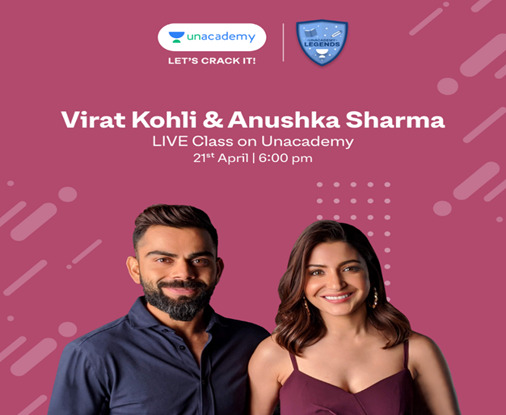
Week 6: The Last Dance
My PR activity for this week is the evaluation of ESPN’s documentary the last dance which revolves around the career of Michael Jordan and the Chicago Bulls dynasty in the early ’90s and late ’90s.
The documentary is a 10 part series and I watched the two episodes released on 19th April on the video streaming platform Netflix.
After just 2 episodes of the 10 part documentary was released it created a huge buzz among the fans of the sport as well as pro players. The impact it has had on viewership was immense. It was the most viewed ESPN documentary by garnering 6.3 million viewers for the first episode and 5.8 million for the second. It was a major hit on major social media platforms such as Twitter, Facebook, and Instagram. The total for social media engagements via tweets and posts on these platforms was a whopping 9 million.
I believe the documentary struck a wonderful chord among all groups since Michael Jordan was a global icon who dominated his sport. The release date was preponed due to the current pandemic of the Covid-19 and ESPN analyzed this to perfection. There have always been a lot of cultural debates among sports fans and analysts on who is the G.O.A.T and since there isn’t much sport to watch the debates have heated up this past month. I think the release date was preponed to remind the world of Jordan’s stardom and greatness.
The main agenda of the organization was to showcase how elite athletes and major sporting dynasties function.
https://www.nbcsports.com/chicago/bulls/last-dance-premiere-smashes-records-becomes-most-viewed-espn-documentary
https://edition.cnn.com/2020/04/17/entertainment/the-last-dance-review/index.html
https://www.youtube.com/watch?v=N9Z9JtNcCWY&t=1s

Week 7:- Move more at home
My PR activity this week is evaluating a partnership between Manchester City and Rexona. Manchester City joined the #MoveMoreAtHome campaign started by Rexona via a video opportunity.
Manchester City posted a video on their official Instagram handle on the 22 of April which consisted of players from the club such as Kevin de Bruyne and Ilkay Gundogan to show their support.
Manchester City created a video with players working out at home and also have them doing a few tricks with the football to inspire millions to move more through the power of football. The video was replayed by over 70,000 people. I came across the video on my Instagram feed as I follow the club. Due to the COVID-19 pandemic engaging any form of physical activity has become a challenge. The video also includes people from the community engaging in physical activity using the #MoveMoreAtHome to encourage others to do the same.
The majority of the community relies on going outdoors for engaging some form of physical activity. The strategy behind the campaign was to showcase people's physical activity that can be done at home with minimal equipment and also highlight different forms of physical movement such as dancing or juggling/dribbling with a ball. The short clip consisted of small pop up messages such as ‘uniting people in the movement and celebrating those keeping moving’ which highlighted their message which was to keep moving.
The main agenda of the organization was to showcase people who could indulge in any form of movement at home and wanted to encourage movement through the power of football.
https://www.instagram.com/p/B_P4Zhjpckf/
Week 9:- Last Ride
My PR activity this week is are short clips of the limited television series of the documentary titled ‘ Undertaker: The last ride’ featuring arguably the greatest wrestler of World Wrestling Entertainment’s (WWE) Mark Callaway( The Undertaker)
The television series is an exclusive series of the WWE network consisting of 5 episodes featuring Mark Callaway’s journey from near retirement to completing 25 years and still going strong at the age of 55 when most wrestlers retire at the age of 40-45. The first clip was posted on WWE’s Instagram page on 6 May and was followed up with a few more clips during the week.
The several short clips that have been posted by WWE’s official Instagram handle breaks all stereotypes surrounding the career of Mark Callaway. In his 25+ career, Mark Callaway had never broken his portrayal of the character ‘The Undertaker’ on camera. The clips so far highlight’s the high standards he set for himself and the immense sacrifices(physical and mental) he had to make to flourish in the business. It also showcased Mark Callaway the person and the aura he had among his colleagues in the business.
Mark Callaway’s character ‘The Undertaker’ has a huge fan-base across the world. Personally, as a fan to watch the person break his character and understand him as a person was a treat. The short clips so far give snippets of some of the episodes and each clip highlighted several different aspects of the series. WWE’s strategy to have this television series exclusive to its network is a great way to get people interested in their network. The clips were well put together with the iconic music of The Undertaker subtly playing in the background surely struck a chord with the fans of the character.
The main agenda of the organization was to increase the membership numbers for their network and get people interested in their product.
https://www.youtube.com/watch?v=8uZ5XBQ_ER4&t=1s
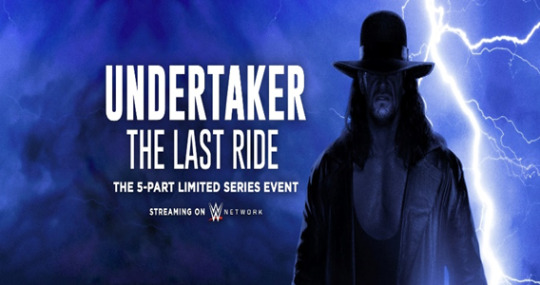
Week 10: Join The Bundesliga
My PR activity this week highlights Bundesliga’s photo opportunity to attract football fans to watch their league during the lock-down.
A thread of 3 pictures posted on their Instagram handle on 16 May which put out a background of the teams present in the Bundesliga to influence potential football lovers to follow a team while watching the league.
Bundesliga became the first of the five major European football leagues to resume their season after been shut down for nearly 2 months. The post had a flowchart of questions for potential fans of the league such as ‘do they prefer traditional values over winning championships? ‘. All Questions had two options yes and no which led you to a team or another question respectively. This way all the teams in the Bundesliga were covered.
Bundesliga grabbed this opportunity with both hands. They had a very clever strategy in place for attracting potential fans. They struck a chord with fans across the globe as they targeted to get more fans by selecting a club and fans all over the world consider their relationship with the club sacred and has an enormous emotional factor attached to it.
The main agenda of the organization was to increase their fan-base and showcase their brand all over the globe.

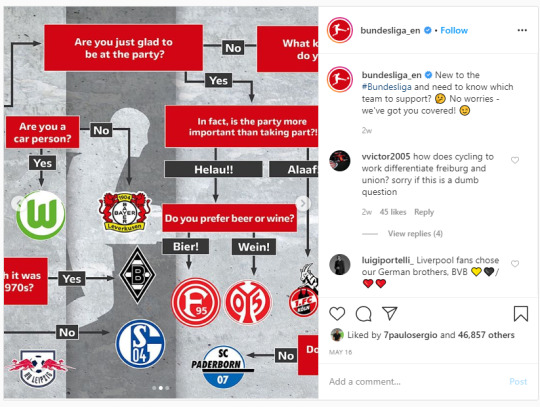
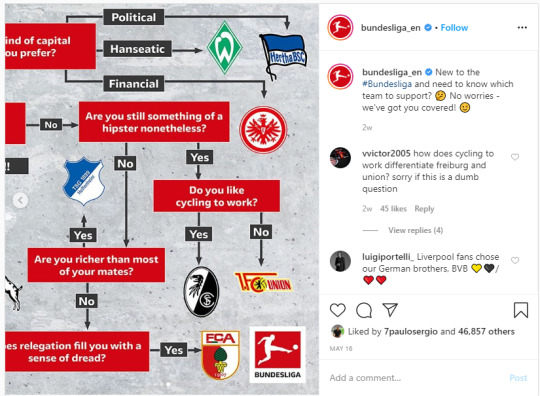
Week 11 :- Not The GP
My PR activity this week is assessing Formula one’s #NotTheGP campaign which was initiated when the season was suspended indefinitely due to Covid-19.
I came across the #NotTheGP campaign on my YouTube feed. #NotTheGP is a virtual race consisting of formula one drivers and other famous personalities from the world. The race this week was in Monaco on 24th May which was accessible to the community via YouTube and twitch.
The virtual race is taking place on Formula one’s official game the F1 2019. The virtual race has 20 laps with the same rules as an actual race. Every constructor must have a formula one driver from their academies and a famous personality from any field of life competing for them. The virtual race in Monaco includes top footballers such as Pierre Aubameyang and Thibaut Courtois. Over 280,000 fans live streamed to watch the virtual on YouTube and Twitch.
The virtual race was accessible via a link posted across all of Formula one’s social platforms such as Instagram and YouTube making it very easy for a fan to get access to live stream the event. The race had a feature where you could conversations between the racers which added to the entertainment factor. The video quality was very good and the live commentary was on cue and in sync with race.
The main agenda of the organization was to get put out content for the fans to enjoy and keep up with other sports in maintaining their fan base.
https://www.youtube.com/watch?v=l1IpPZetLv4&feature=youtu.be
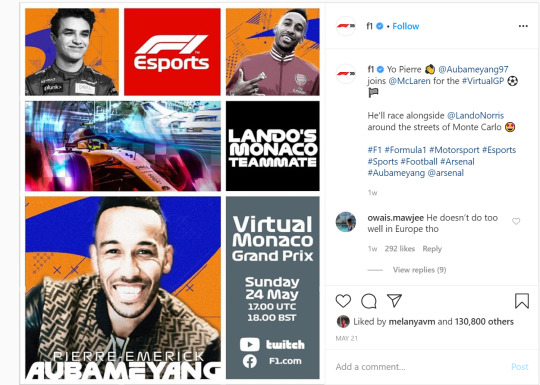
Week 12:- What If Derby
My PR activity for this week is a Virtual home run derby introduced by Major league baseball in partnership with T-Mobile which features some the best home run hitters.
The virtual derby was introduced on MLB’s official social media platforms such as Facebook and Instagram and the voting was conducted on twitter.
The derby was a head to head contest between two famous home run hitters of the MLB from any area and the fans get to decide who could hit more homers than the other. The virtual derby consists of 16 players such as David Ortiz and Alex Rodriguez. The WhatIfDerby was introduced in partnership with T-Mobile on the 27th of May. The had small snippets of the players striking homers before the went head to head so viewers could get a glimpse of the players before casting their vote.
The WhatIfDerby is a nice way to get fans involved in the scheme of things during this pandemic. As fans don’t have the liberty to view and have an impact on games given the current situation this provides a great opportunity to have an impact on the things. The snippets before the viewers cast their vote is a nice touch by the MLB to get some content out to the fans. The posts were very innovative showcasing the format which was put together very well and for casting your vote all you had to was go on twitter and comment the player name in the comment section of the official post by MLB.
The agenda of the organization was to help fans get through this difficult time through sporting content and also highlight their partnership with T-Mobile.

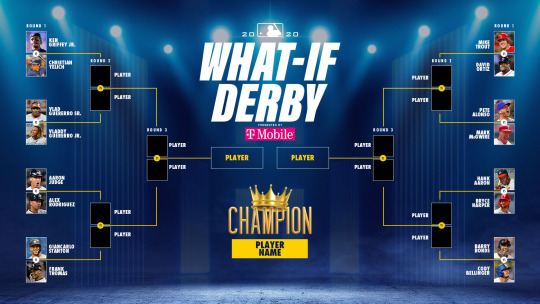
0 notes
Link
Three Billboards Outside Ebbing, Missouri has all the makings of an Oscar frontrunner. The festival favorite boasts a riveting turn from lead Frances McDormand, a deliciously sharp screenplay from director Martin McDonagh, and a tour-de-force performance from Sam Rockwell as a self-loathing corrupt cop. It received near-universal praise at the Venice and Toronto film festivals. At key awards ceremonies, Three Billboards swept — winning the Golden Globe for Best Drama, the SAG Award for Best Ensemble, the TIFF People’s Choice Awards, and landing a spot in the AFI top 10 of 2017.
Most importantly, it was timely. Three Billboards is a story about a bereaved mother Mildred Hayes who shakes up a small Midwestern town with her bitter attacks against the beloved Chief Willoughby (Woody Harrelson) for his department’s inability to find the culprit behind her daughter’s rape and murder. The film hit the festival circuit right at the crest of #MeToo movement, an industry-wide reckoning of the systemic abuse and harassment of women at the hands of Hollywood’s most powerful men. It seemed fitting, then, that the Oscar frontrunner would be about righteous female vengeance, led by a middle-aged actress whose furious performance threatened to sear through the screen.
And yet, Three Billboards finds itself facing its own reckoning, with a backlash as fierce as Mildred’s single-minded quest for justice.
You could chalk it up to the usual polarization of the Oscar race, wherein the nuances of the best films of the year are boiled down to their most basic flaws. La La Land fell victim to this last year — seeing itself transformed from “charming love letter to classic Hollywood musicals” to “nostalgic relic emblematic of the racial tumult overtaking America.” Backlash and Oscar favorite almost always go hand-in-hand, with public opinion turning on a perfectly fine film for want of a narrative with a villain and an underdog.
Opening to Critical Acclaim
The thing about Three Billboards is that it seemed poised to take on that underdog role. When the film premiered at the Venice Film Festival in September, it was presented as the polar opposite of Oscar bait: a brutal, barbed black comedy that dared you to like it.
Its borderline farcical approach to grief cut away any semblance of pretension, yet it carried an Important Message on female wrath in the form of McDormand’s caustic Mildred Hayes. Owen Gleiberman wrote in his Variety review, “She’s woke, she’s fierce, she’s beyond shame or scruples, she’s screaming truth to power, she’s charged up with the wrath of an avenger.” The Washington Post’s Ann Hornaday wrote in its rave review, “McDonagh couldn’t have anticipated the moment when his movie would arrive, a time when sexism in its most virulent forms has been revealed in a daily drumbeat of stories recounting unspeakable exploitation and abuse.” In the wake of the Harvey Weinstein revelations, Mildred soon became the standard bearer for the #MeToo and #TimesUp movements, 2017’s embodiment of female rage.
The movie hit a nerve. It won a standing ovation at its premiere at Venice, where McDonagh won the best screenplay prize. It would win the People’s Choice Award at the Toronto Film Festival over crowd-pleasing movies like The Shape of Water, Darkest Hour, and Molly’s Game. But the movie’s initial full-bodied support would soon change once it hit general theaters.
Out of the Festival Bubble
As Three Billboards spilled out of the festival circuit, there were rumblings among critics of color about the film’s clumsy (some would say non-existent) handling of race. The criticisms were aimed at Sam Rockwell’s Dixon, a racist, violent cop who was rumored to have tortured a black man in custody. Rockwell plays Dixon as a pathetic dope rigged to explode, and for the first half of the film, Three Billboards doesn’t ask you to sympathize with him. He’s an alcoholic, he commits horrific, senseless beatings, he lives with his emotionally abusive mom. But Chief Willoughby is convinced that underneath that veneer of intolerance, there’s a “good man” in Dixon, which triggers a transformation in Rockwell’s character, from revolting villain to sympathetic ally.
Vulture’s Nate Jones points out, “The second half of the movie largely belongs to Sam Rockwell’s Dixon, a ne’er-do-well cop with a history of racist violence who gets some measure of redemption by the end of the film. Dixon’s arc has made Rockwell a shoo-in for Best Supporting Actor races at the same time as it’s rubbed some viewers the wrong way thanks to a noticeable bit of sleight of hand: McDonagh never lets us meet the black person Dixon is said to have tortured, which lets his past crimes stay entirely in the abstract.” Jones’ Vulture colleague Kyle Buchanan notes that the film’s only other black characters are all “good-hearted ciphers.”
The issue of redemption remains the point of contention for many defenders of Three Billboards. “What if Three Billboards is a tale of damnation, not redemption?” Washington Post critic Sonny Bunch writes. The film “has a much stronger message about the dangerously fascist impulse that goes along the desire for total and perfect justice.”
In the most thoughtful analysis of Three Billboards and its race problem, Allison Willmore at Buzzfeed astutely points out that the film takes place in the state where three years ago, tensions between police and the black community came to a head after the death of Michael Brown in Ferguson. But “in striving to make Ebbing feel like a lived-in place, rather than just an idea of one, Three Billboards treats racism like it’s just another quaint regional detail — part of the local decor,” Willmore writes. “Three Billboards is so sharp when it comes to depicting Mildred’s pain, and yet so clumsy when it comes to depicting the habitual racism of the place in which she lives, that it feels indicative of the terrible fallacy that we can only focus on one type of oppression at once.”
Willmore points to McDonagh’s roots commenting on Irish working-class conflicts as the issue, which the director attempts to try to transport to Middle America. The Daily Beast‘s Ira Madison doubles down on this assertion, writing “Whether it be through malice or ignorance, McDonagh’s attempts to script the black experience in America are often fumbling and backward and full of outdated tropes.”
These kinds of criticisms continued to roll in as the film expanded to general theaters in November. Why the sudden outcry? NPR’s Gene Demby posited that the film’s rave reception at Toronto was an indictment of the overwhelming whiteness of the festival circuit and the critical establishment. Demby said on Twitter, “I think festival audiences are so used to the centrality of white people’s inner lives treated as the Actual Emotional Stakes that they don’t get what’s janky about a movie set in a town where cops torture black [people] but the plot is about thwarted justice for a white lady.”
Catapulted to Awards Favorite
The difference between Three Billboards and past Oscar “favorites-turned-pariahs” is that this criticism began before the film became an awards frontrunner. But as awards season kicked into gear, it became apparent that Three Billboards was the clear favorite. Three Billboards swept the Golden Globes, winning the most film awards of the night with Best Drama, Best Supporting Actor for Rockwell, Best Actress for McDormand, and Best Screenplay. It also won the Best Ensemble Prize at the SAG Awards, an award that often goes to future Best Picture winners.
The Golden Globes was Hollywood’s first public show of the reckoning of men in power. Actors and actresses wore black in solidarity with the anti-harassment and abuse coalition Time’s Up, series and films dealing with the sexual assault and the female experience won big (Big Little Lies, Handmaid’s Tale), stirring speeches against sexism were given by Meryl Streep and Oprah Winfrey. Three Billboards, with its wrathful tale of female vengeance, became part of that narrative with its four wins. Some critics accused the night of being “performative” in its wokeness, while others were encouraged by how these movements would rock the Academy Awards, an institution that is well-documented to be averse to progress.
Essentially, critics are saying, it’s hypocritical for a film that has been propelled to the front of the Oscar race because of its pertinence to one movement (#MeToo) to be completely indifferent to another movement (#BlackLivesMatter). It all sounds very political, because awards season inevitably is political, New York Times writer Wesley Morris writes. Three Billboards “can’t be just the misfire that it is,” Morris says. “The enthusiasm for it has to represent the injustice the movie believes it’s aware of — against young murdered women, their suffering dysfunctional families and black torture victims we never see — but fails to sufficiently poeticize or dramatize what Mr. McDonagh is up to here: a search for grace that carries a whiff of American vandalism. Of course, few movies can predict their moment, but “Three Billboards” might be inadequately built for this one.”
The post The ‘Three Billboards Against Ebbing, Missouri’ Backlash, Explained appeared first on /Film.
from /Film http://ift.tt/2DAs5qh
0 notes
Text
The Myth of the Male Bumbler
via The Week
Lili Loofbourow
Male bumblers are an epidemic.
These men are, should you not recognize the type, wide-eyed and perennially confused. What's the difference, the male bumbler wonders, between a friendly conversation with a coworker and rubbing one's penis in front of one? Between grooming a 14-year-old at her custody hearing and asking her out?
The world baffles the bumbler. He's astonished to discover that he had power over anyone at all, let alone that he was perceived as using it. What power? he says. Who, me?
The bumbler is the first to confess that he's bad at his job. Take Attorney General Jeff Sessions, who testified Tuesday of the Trump campaign's foreign policy team, which he ran and which is now understood to have been in contact with Russian agents: "We were not a very effective group." Or consider Dave Becky, the manager of disgraced comedian Louis C.K. (who confessed last week to sexual misconduct). Becky avers that "never once, in all of these years, did anyone mention any of the other incidents that were reported recently." One might argue that no one should have needed to mention them; surely, as Louis C.K.'s manager, it was Becky's job to keep tabs on open secrets about his client? Becky's defense? He's a bumbler! ¯\_(ツ)_/¯
The bumbler doesn't know things, even things about which he was directly informed. Jon Stewart was "stunned" by the Louis C.K. revelations, even though we watched someone ask him about them last year. Vice President Mike Pence maintains he had no idea former National Security Adviser Michael Flynn was lobbying for a foreign power — despite the fact that Flynn himself informed the transition team back in January, and even though Rep. Elijah Cummings (D-Md.) had written Pence — who was head of the transition team — to that effect as far back as Nov. 18, 2016. Wait, what? said Pence in March. Surely not! Really?
There's a reason for this plague of know-nothings: The bumbler's perpetual amazement exonerates him. Incompetence is less damaging than malice. And men — particularly powerful men — use that loophole like corporations use off-shore accounts. The bumbler takes one of our culture's most muscular myths — that men are clueless — and weaponizes it into an alibi.
Allow me to make a controversial proposition: Men are every bit as sneaky and calculating and venomous as women are widely suspected to be. And the bumbler — the very figure that shelters them from this ugly truth — is the best and hardest proof.
Breaking that alibi means dissecting that myth. The line on men has been that they're the only gender qualified to hold important jobs and too incompetent to be responsible for their conduct. Men are great but transparent, the story goes: What you see is what you get. They lack guile.
The "privilege" argument holds that this is partly true because men have never needed to deceive. This interesting Twitter thread by Holden Shearer has been making the rounds: "One of the oldest canards in low-denominator comedy is that women are inscrutable and men can't understand them. There's a reason for this and it ain't funny," he writes. The thread is right about the structural problems with lowbrow "women are so confusing!" comedy. "Women VERY frequently say one thing and mean another, display expressions or reactions that don't jibe with their feelings, and so on. But it's actually really easy to decode once you understand why it happens. It is survival behavior," Shearer writes.
But nested in that account is the assumption that the broad majority of men are not dissemblers. The majority are — you guessed it — bumblers! If you've noticed a tendency to treat girls — like the 14-year-old whom now-Senate candidate Roy Moore allegedly picked up at her custody hearing — as knowing adults and men in their 30s — like Trump foreign policy adviser George Papadopoulos and Donald Trump, Jr. — as erring youngsters, large sons and "coffee boys," this is why. Our culture makes that script available. It's why Sessions is so often referred to as an "elf" instead of a gifted manipulator (here's a very clever analysis of his strategy, which weaponizes our tendency to read white men — even very old attorneys with a long history of maliciously undermining civil rights — as slow, meandering children who know not what they do.)
It's counterintuitive, I know. For decades now, the very idea of a duplicitous, calculating man has been so exceptional as to be almost monstrous; this is the domain of cult leaders, of con artists, of evil men like the husband in Gaslight. And while folks provisionally accept that there aremen who "groom" children and "gaslight" women, the reluctance to attach that behavior to any real, flesh-and-blood man we know is extreme. Many people don't actually believe that normal men are capable of it.
Back when Dylan Farrow's allegations about Woody Allen were in the news, people quickly glommed onto Allen's exculpatory claim that Mia Farrow "brainwashed" her children into lying about him. It was fascinating, both because the claim was pretty evidence-free and because Woody Allen had blatantly and repeatedly admitted to manipulating and grooming Soon-Yi Previn. But, because Allen so skillfully deployed the script of the bumbler, everyone failed to see his behavior in those terms. Allen's portrayal of himself — he barely knows what he had for breakfast! — was just that effective. Never mind that he's so organized, ambitious, driven, confident, and purposeful that he successfully puts out a movie a year.
As the accusations of sexual misconduct roiling politics, publishing, and Hollywood continue to stack up, a few things are going to happen. The first stage of a phenomenon like this will always be to characterize the accused men as exceptions, as bad apples. #NotAllMen, the saying goes. But the second is that everyone is going to try to naturalize sexual harassment. If there are this many men doing these things, then surely this is just how men are! that argument will go. There's a corollary lurking underneath there: They can't help themselves. They're bumblers.
That won't wash. But the only way to guard against it is to shed our weird cultural blindness to manipulative male behavior. We must be smarter than our cultural defaults. We need to shed the exculpatory scripts that have mysteriously enabled all these incompetent bumblers to become rich, successful, and admired even as they maintain that they're moral infants.
We do that by looking at the deliberate, active steps they took to conceal what they did.
Take Benjamin Genocchio, who was recently replaced as executive director of the Armory Show, the New York City art fair, after 19 people testified to his inappropriate conduct. "I never intentionally acted in an inappropriate manner nor spoke to or touched a colleague in a sexually inappropriate way," Genocchio said. "To the extent my behavior was perceived as disrespectful, I deeply and sincerely apologize and will ensure it does not happen again."
In short: He's a bumbler!
Before you nod along, agreeing that it's just impossible to know what's appropriate in this day and age, let's look at how the allegations against Genocchio square with his professed confusion. At Artnet's 2014 holiday party at the Gramercy Park Hotel, as Colleen Calvo, the marketing coordinator, was checking guests in at the door, Genocchio allegedly ran his hand up her sequin pants. Per Calvo: "Ben said, 'Is this the only time I get to touch your ass without getting yelled at?'"
Does that sound like someone who doesn't understand the difference between what's appropriate and what's not? Does it instead sound like someone who understands perfectly what the boundaries are and is knowingly violating them? Nor was this isolated: The New York Timesconfirmed that Genocchio was spoken to repeatedly about his behavior. It was a known problem. He ignored the warnings.
Facts be damned: Genocchio knew he was playing to a wider audience that wouldn't look at those details; he hoped he could activate the bumbler stereotype and use it as an alibi.
This is not what bumblers do. This is what predators do. The actions are malicious, and the mind games are deliberate. So what about their handling of their reputations after the fact? Was this, too, bumbled?
No. In the majority of cases, the accused men were cunning and vindictive stewards of their reputations and did everything they could to ruin their victims.
Harvey Weinstein reportedly destroyed the careers of actresses he harassed; he got them branded as "difficult" or "crazy." He apparently hired ex-Mossad agents to spy on them.
Director Brett Ratner — to choose one unsavory example — addressed Olivia Munn's account in her book about how he masturbated in front of her (she'd left the director anonymous) by identifying himself and claiming he'd slept with her. (He later admitted she never had sex with him). It was a calculated effort to inflict maximum damage on her; to brand her a "slut."
Former Fox News host Bill O'Reilly allegedly pressured one of his victims(who worked at the network ) to give him "dirt" on another victim so he could shut down her allegations against him.
Former Fox News chief Roger Ailes reportedly videotaped his victims in compromising situations so he could ruin them later if they misbehaved.
What about the seduction phase? There's been a spate of articles about men desperately worried that they've somehow bumbled into harassment. Were these men "accidental" predators? Did they stumble — baffled and confused — into a situation where they haplessly and unknowingly harassed women?
Well, director James Toback apparently used "theater school" language to convince his targets that their vulnerability was artistically necessary. As Rachel McAdams recalls, he "used the same language during my audition — that you have to take risks and sometimes you're going to be uncomfortable and sometimes it's going to feel dangerous. And that's a good thing — when there is danger in the air and you feel like you are out of your comfort zone."
Roy Moore allegedly weaponized the nastiness intrinsic to divorce to convince a mother to leave her child in his care at her custody hearing. "He said, 'Oh, you don't want her to go in there and hear all that. I'll stay out here with her,'" said Nancy Wells, the mother of one of his accusers. "I thought, how nice for him to want to take care of my little girl." Moore allegedly picked up the 14-year-old around the corner from her house — presumably so no one would see him — and took her to the woods. The next time he allegedly undressed her, removed his own clothes, and made her touch him.
Oh, and Louis C.K., the ultimate bumbler? The bumbler extraordinaire? He lied. He lied to Marc Maron, a close friend, saying that the rumors about him were false. He appears to have done the same to Pamela Adlon, who defended him against the accusations. Nor does it end there: To hear Louis C.K. tell it, he had no idea his manager was getting the women he'd targeted to keep quiet. To hear his manager tell it, he had no idea Louis C.K. had been up to much of anything at all. Louis C.K. might be any number of things — sick, addicted, depressed, twisted, predatory, egotistical, self-destructive — but one thing he is not is a bumbler.
How many deliberate, premeditated lies, how many carefully set traps, how many instances of deceit do we need before we can admit that men are every bit as duplicitous and two-faced as women are suspected of being? That harassment is not an accident? That predation requires planning? That this gigantic apparatus through which women's careers are destroyed and men's are preserved isn't just happenstance?
Alas, the greatest supporters of the bumbler myth tend to be other men. You might recall that Dustin Hoffman was accused of groping and sexually harassing a 17-year-old on set — of saying things like "I'll have a hard-boiled egg … and a soft-boiled clitoris." He pleads bumbler: "I have the utmost respect for women and feel terrible that anything I might have done could have put her in an uncomfortable situation," he said. And indeed, it is hard to imagine how a teenager at her first job might receive those words. But did her employer defend her when she finally confessed, decades later, that she'd dealt with a hostile work environment? No, director Volker Schlöndorff has instead come to Hoffman's defense: He is "just a kidder," Schlöndorff says. Everyone gave Hoffman a foot massage!
Predatory men normalize their predation and support each other. "You're a target. I'm a target," O'Reilly said in a July 2016 appearance on Late Night with Seth Meyers in which he discussed his employer, Ailes. "Anytime somebody could come out and sue us, attack us, go to the press, or anything like that. … I stand behind Roger 100 percent." Then-presidential candidate Donald Trump, before he himself was accused of sexual assault, also defended Ailes. "I can tell you that some of the women that are complaining, I know how much he's helped them," the future president said, adding that Ailes is "just a very, very good person. And, by the way, a very, very talented person." Weinstein supported Roman Polanski, calling the charges that he drugged and anally raped a 13-year-old girl a "so-called crime" and calling the charges themselves "a shocking way to treat such a man." And Oliver Stone, himself accused of groping a model, lamentedWeinstein's fate: "It's not easy what he's going through," Stone said. "I'm a believer that you wait until this thing gets to trial. I believe a man shouldn't be condemned by a vigilante system."
This is how the culture attempts to normalize this stuff: by minimizing the damage to women and the agency of men. When actress Katharine Towne described an incident in which Brett Ratner started hitting on her at a dinner party, refused to take no for an answer, and trapped her in a bathroom, here's how his attorney Marty Singer responded: "Even if hypothetically this incident occurred exactly as claimed, how is flirting at a party, complimenting a woman on her appearance, and calling her to ask her for a date wrongful conduct?" Singer said.
Look, this is a moment when our cultural myths about men and women are colliding. It's scary and confusing and way too widespread for comfort. But rather than knee-jerking toward normalizing, it's worth taking a minute to parse just how complicated it is to make sense of the different realities in which men and women have been living. I've written repeatedlyabout the culture-wide phenomenon of "not-knowing," of how our biggest shared cultural muscles are built to repress knowledge about how routinely women's professional lives are derailed through sexual harassment and misconduct. Emma Thompson called the Weinstein revelations "the tip of the iceberg," and she's right: Economists have long and lazily attributed the exodus of women in various industries to their decision to bear children, but now this giant explanatory iceberg is floating up — this absolutely gigantic, widely denied story about how women are routinely driven from their industries because their male colleagues need to be free to use their professional power to indulge their sexual urges.
Most of us know that when a politician sits on the stand and insists that he "does not recall," that it's a political performance, a manipulative pretense intended to obfuscate. Let's apply that intelligent skepticism toward this rash of professions of male incompetence. To put it in pragmatic terms: You can be a bumbler, or you can keep your job. You can't have both.
SHARE!
1 note
·
View note
Link
Three Billboards Outside Ebbing, Missouri has all the makings of an Oscar frontrunner. The festival favorite boasts a riveting turn from lead Frances McDormand, a deliciously sharp screenplay from director Martin McDonagh, and a tour-de-force performance from Sam Rockwell as a self-loathing corrupt cop. It received near-universal praise at the Venice and Toronto film festivals. At key awards ceremonies, Three Billboards swept — winning the Golden Globe for Best Drama, the SAG Award for Best Ensemble, the TIFF People’s Choice Awards, and landing a spot in the AFI top 10 of 2017.
Most importantly, it was timely. Three Billboards is a story about a bereaved mother Mildred Hayes who shakes up a small Midwestern town with her bitter attacks against the beloved Chief Willoughby (Woody Harrelson) for his department’s inability to find the culprit behind her daughter’s rape and murder. The film hit the festival circuit right at the crest of #MeToo movement, an industry-wide reckoning of the systemic abuse and harassment of women at the hands of Hollywood’s most powerful men. It seemed fitting, then, that the Oscar frontrunner would be about righteous female vengeance, led by a middle-aged actress whose furious performance threatened to sear through the screen.
And yet, Three Billboards finds itself facing its own reckoning, with a backlash as fierce as Mildred’s single-minded quest for justice.
You could chalk it up to the usual polarization of the Oscar race, wherein the nuances of the best films of the year are boiled down to their most basic flaws. La La Land fell victim to this last year — seeing itself transformed from “charming love letter to classic Hollywood musicals” to “nostalgic relic emblematic of the racial tumult overtaking America.” Backlash and Oscar favorite almost always go hand-in-hand, with public opinion turning on a perfectly fine film for want of a narrative with a villain and an underdog.
Opening to Critical Acclaim
The thing about Three Billboards is that it seemed poised to take on that underdog role. When the film premiered at the Venice Film Festival in September, it was presented as the polar opposite of Oscar bait: a brutal, barbed black comedy that dared you to like it.
Its borderline farcical approach to grief cut away any semblance of pretension, yet it carried an Important Message on female wrath in the form of McDormand’s caustic Mildred Hayes. Owen Gleiberman wrote in his Variety review, “She’s woke, she’s fierce, she’s beyond shame or scruples, she’s screaming truth to power, she’s charged up with the wrath of an avenger.” The Washington Post’s Ann Hornaday wrote in its rave review, “McDonagh couldn’t have anticipated the moment when his movie would arrive, a time when sexism in its most virulent forms has been revealed in a daily drumbeat of stories recounting unspeakable exploitation and abuse.” In the wake of the Harvey Weinstein revelations, Mildred soon became the standard bearer for the #MeToo and #TimesUp movements, 2017’s embodiment of female rage.
The movie hit a nerve. It won a standing ovation at its premiere at Venice, where McDonagh won the best screenplay prize. It would win the People’s Choice Award at the Toronto Film Festival over crowd-pleasing movies like The Shape of Water, Darkest Hour, and Molly’s Game. But the movie’s initial full-bodied support would soon change once it hit general theaters.
Out of the Festival Bubble
As Three Billboards spilled out of the festival circuit, there were rumblings among critics of color about the film’s clumsy (some would say non-existent) handling of race. The criticisms were aimed at Sam Rockwell’s Dixon, a racist, violent cop who was rumored to have tortured a black man in custody. Rockwell plays Dixon as a pathetic dope rigged to explode, and for the first half of the film, Three Billboards doesn’t ask you to sympathize with him. He’s an alcoholic, he commits horrific, senseless beatings, he lives with his emotionally abusive mom. But Chief Willoughby is convinced that underneath that veneer of intolerance, there’s a “good man” in Dixon, which triggers a transformation in Rockwell’s character, from revolting villain to sympathetic ally.
Vulture’s Nate Jones points out, “The second half of the movie largely belongs to Sam Rockwell’s Dixon, a ne’er-do-well cop with a history of racist violence who gets some measure of redemption by the end of the film. Dixon’s arc has made Rockwell a shoo-in for Best Supporting Actor races at the same time as it’s rubbed some viewers the wrong way thanks to a noticeable bit of sleight of hand: McDonagh never lets us meet the black person Dixon is said to have tortured, which lets his past crimes stay entirely in the abstract.” Jones’ Vulture colleague Kyle Buchanan notes that the film’s only other black characters are all “good-hearted ciphers.”
The issue of redemption remains the point of contention for many defenders of Three Billboards. “What if Three Billboards is a tale of damnation, not redemption?” Washington Post critic Sonny Bunch writes. The film “has a much stronger message about the dangerously fascist impulse that goes along the desire for total and perfect justice.”
In the most thoughtful analysis of Three Billboards and its race problem, Allison Willmore at Buzzfeed astutely points out that the film takes place in the state where three years ago, tensions between police and the black community came to a head after the death of Michael Brown in Ferguson. But “in striving to make Ebbing feel like a lived-in place, rather than just an idea of one, Three Billboards treats racism like it’s just another quaint regional detail — part of the local decor,” Willmore writes. “Three Billboards is so sharp when it comes to depicting Mildred’s pain, and yet so clumsy when it comes to depicting the habitual racism of the place in which she lives, that it feels indicative of the terrible fallacy that we can only focus on one type of oppression at once.”
Willmore points to McDonagh’s roots commenting on Irish working-class conflicts as the issue, which the director attempts to try to transport to Middle America. The Daily Beast‘s Ira Madison doubles down on this assertion, writing “Whether it be through malice or ignorance, McDonagh’s attempts to script the black experience in America are often fumbling and backward and full of outdated tropes.”
These kinds of criticisms continued to roll in as the film expanded to general theaters in November. Why the sudden outcry? NPR’s Gene Demby posited that the film’s rave reception at Toronto was an indictment of the overwhelming whiteness of the festival circuit and the critical establishment. Demby said on Twitter, “I think festival audiences are so used to the centrality of white people’s inner lives treated as the Actual Emotional Stakes that they don’t get what’s janky about a movie set in a town where cops torture black [people] but the plot is about thwarted justice for a white lady.”
Catapulted to Awards Favorite
The difference between Three Billboards and past Oscar “favorites-turned-pariahs” is that this criticism began before the film became an awards frontrunner. But as awards season kicked into gear, it became apparent that Three Billboards was the clear favorite. Three Billboards swept the Golden Globes, winning the most film awards of the night with Best Drama, Best Supporting Actor for Rockwell, Best Actress for McDormand, and Best Screenplay. It also won the Best Ensemble Prize at the SAG Awards, an award that often goes to future Best Picture winners.
The Golden Globes was Hollywood’s first public show of the reckoning of men in power. Actors and actresses wore black in solidarity with the anti-harassment and abuse coalition Time’s Up, series and films dealing with the sexual assault and the female experience won big (Big Little Lies, Handmaid’s Tale), stirring speeches against sexism were given by Meryl Streep and Oprah Winfrey. Three Billboards, with its wrathful tale of female vengeance, became part of that narrative with its four wins. Some critics accused the night of being “performative” in its wokeness, while others were encouraged by how these movements would rock the Academy Awards, an institution that is well-documented to be averse to progress.
Essentially, critics are saying, it’s hypocritical for a film that has been propelled to the front of the Oscar race because of its pertinence to one movement (#MeToo) to be completely indifferent to another movement (#BlackLivesMatter). It all sounds very political, because awards season inevitably is political, New York Times writer Wesley Morris writes. Three Billboards “can’t be just the misfire that it is,” Morris says. “The enthusiasm for it has to represent the injustice the movie believes it’s aware of — against young murdered women, their suffering dysfunctional families and black torture victims we never see — but fails to sufficiently poeticize or dramatize what Mr. McDonagh is up to here: a search for grace that carries a whiff of American vandalism. Of course, few movies can predict their moment, but “Three Billboards” might be inadequately built for this one.”
The post The ‘Three Billboards Against Ebbing, Missouri’ Backlash, Explained appeared first on /Film.
from /Film http://ift.tt/2DAs5qh
0 notes